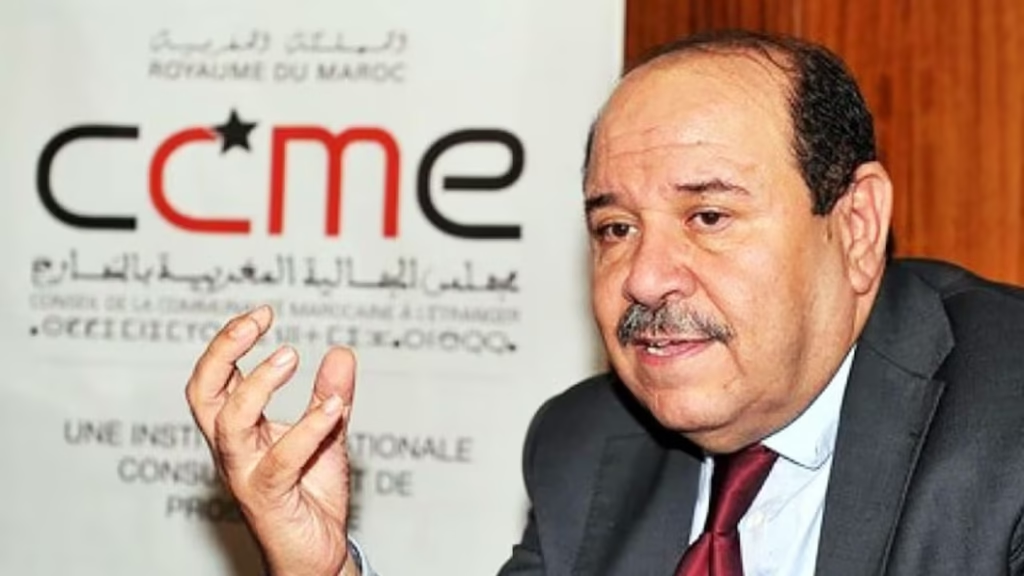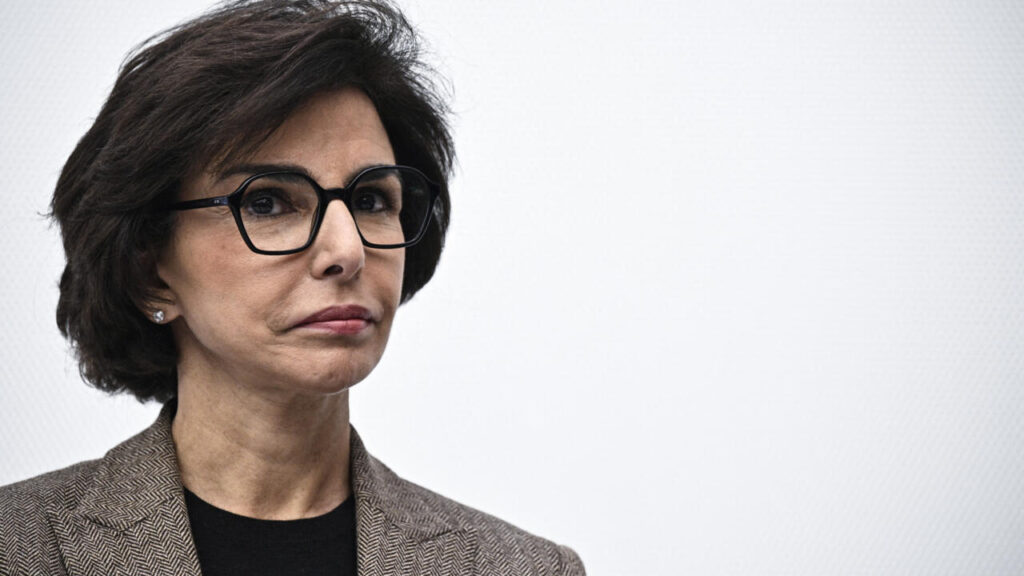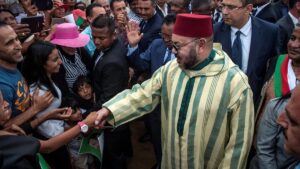Rachida Dati's Scream and the Beginning of a New Moroccan Narrative in Europe

Dr. Abdullah Bousouf
Written by: Dr. Abdullah Boussouf (Historian, Secretary-General of the Council of the Moroccan Community Abroad)
Like any great nation, we have always been proud of our men, our glories, our sultans and our noble kings. We have spoken at length throughout the world about the achievements of Moroccans at home and abroad, whether in the field of naval jihad, travel, or ambassadors like Ben Aisha and others.
We took the necessary time to talk about Al-Sharif Al-Idrisi, Al-Hassan Al-Wazen, Hassan Al-Attar, and other Moroccans who contributed to changing many aspects of history with their vast knowledge and brilliant intelligence.
We have also devoted significant space to the paths of distinguished, creative, and talented Moroccans living abroad today. Suffice it to mention Rachid Yazami, Moncef Slaoui, Kaouthar Hafidi, Asma Boujibar, Najat Belkacem, Rachida Dati, and a long list of city mayors, heads of scientific laboratories, politicians, and media figures in their countries of residence. It was our right to unleash our imagination and paint wonderful pictures of all these and other distinguished and creative Moroccans living abroad. Was it enough to paint beautiful and optimistic portraits of these talented individuals? Why do we take a step back with every racist incident or unjustified violence against Moroccans living abroad?
I believe that the Torre Pacheco incident in Spain, and the bullying and threats to which Moroccans working in the fields and hotels of Murcia were subjected by the Spanish far-right, VOX, as well as the strong response of Minister Rachid Dati from within a legislative institution, call for us to reorganize our affairs and think seriously, because these events are not attributed to pure coincidence, but rather represent a small episode in a larger existential and ideological struggle led by the far-right in France, Italy, Germany, Austria, Hungary, Spain, the Netherlands and Belgium.
Conversely, the need to reformulate new ideas and new narratives should not push us to indulge in gratuitous criticism or self-flagellation.
Indeed, the two sides of the battle are unmistakable. On the one hand, there is the narrative of the right and the extreme right, with its political agenda and slogans of preserving the Christian faith, the family, the European demographic structure, and sovereign borders. On the other hand, there is the narrative of the achievements of Moroccans abroad, which recalls all the necessary achievements that have emerged from the womb of suffering, the strong attachment of Moroccans abroad to the bonds of Moroccan identity and culture, their defense of national and territorial sanctities and the Moroccanness of the Sahara, and their contribution to development and social solidarity.

In the midst of this beautiful dream, comes the cry of Minister Rachida Dati from within a venerable French legislative institution, and her words with all her might: “I am not a cleaning lady!” It is worth noting that Rachida Dati has been a minister more than once, and a first-class leader in her party, and has held important ministerial portfolios such as Bearer of the Seals (Ministry of Justice), and the Ministry of Culture, that is, the guardian of French culture and cultural, religious and civilizational heritage.
In the same week, former minister Najat Vallaud-Belkacem will face a fierce campaign from the far right after her appointment to a prestigious judicial position, with the ruling dismissing her eligibility criteria.
I don't believe that Moroccans abroad who have chosen political work and involvement in parties, unions, and the media have had a smooth path. Rather, it's a daily struggle and redoubled efforts to continue standing up to the far-right in Europe. Therefore, I don't believe that the paths of Khadija Arib in the Netherlands, for example, or Fouad Ahidar in Belgium, have deviated from the realm of struggle and self-assertion. Many of these individuals have stood firm in the face of the far-right and achieved success, while others have been held back or retreated as a result of harassment by the far-right and its terrifying media machine.
Today, we need all Moroccan elites, writers, and influencers abroad, to engage in collective action to formulate a new Moroccan narrative that can counter the narrative of the far right in Europe. We must also embrace positive and constructive self-criticism, as we have not yet been able to obtain a sufficient number of intellectual and literary works that champion the positive paths of all Moroccans around the world, starting with Ibn Battuta, Al-Azmouri, and others, as well as all those lackluster celebrations held in honor of Moroccan soldiers who participated in World War II to liberate Europe from fascism and Nazism.
I believe the new narrative must begin with a revival of these folkloric celebrations, which retain clichés that feed the collective European imagination about Moroccans. A group of elderly sheikhs stand proudly with medals of bravery on their chests, waiting to greet the head of state or a senior official. Their health, financial, and legal status should have been taken care of first, given their significant role in hastening the fall of fascism and Nazism. We must also acknowledge the collective neglect of these heroes, as there are few stories and accounts of their heroism and sacrifices for a democratic and free Europe, and few documentaries and films tell the story of Moroccan heroes whose blood watered the lands, plains, and mountains of Europe, and who were comrades in the trenches of freedom in a world war.
We almost drowned in diaspora literature steeped in nostalgia, unintentionally feeding some elements of the European imagination about the Moroccan Muslim immigrant. There is a long list of intellectual and literary productions that address some aspects of Moroccan family and social life that were the subject of European literary awards, because some of the extreme right only needed “a witness from its own people…”! Would a novel that spoke, for example, of Moroccan heroism and decisive positions in the equation of victory in World War II have won? I don’t think so, because the extreme right itself, its media machine, and its financial and economic groups, which some writers and researchers in contemporary history have called “the masters of the world,” will not allow a new narrative that glorifies the role of the fathers of Moroccan or African immigrants in liberating Europe from fascism and Nazism.
This is what we observe in Italy, for example, with the events of the “Marocinati,” where we were also unable to produce a new, competing narrative that could give precedence to the role of the Moroccan “soldiers of the nation” in the Battle of Monte Cassino in 1944, over the mass rapes whose perpetrators were punished either by shooting at the time or through judicial trials. The new narrative requires justice for the Moroccan soldiers who fell by the thousands in the mountains of Italy, and who stood with bare chests and light weapons in front of Adolf Hitler’s aircraft and the fascist forces of Mussolini in central and northern Italy.
The "Marocinati" incident is considered one of the most important thorny points that deserves reflection, because the Italian far right has worked to feed the local collective imagination, that the current Moroccan immigrant is the son of the soldier who committed the gang rapes. The areas of exploitation of this incident have varied, from reports and lawsuits to novels and books, some of which were turned into films such as "La Chuchara", starring Sophia Loren, who won an Oscar for her role. There are also dozens of documentaries and short films that talk about a group of Moroccan soldiers who took their orders from the French leadership, because the Royal Armed Forces were not established until 1956!!
Minister Rachida Dati's cry was the straw that broke the camel's back. Yes, that era is over, and we are now at the beginning of a new era and path, requiring new tools. Yes, the era of a single narrative is over, and we need a collective writing of a narrative to which all living forces contribute, alongside religious, political, and media actors and researchers in the social sciences. Its title should be: "Comrades in the trench, partners in citizenship" in the countries of residence.





